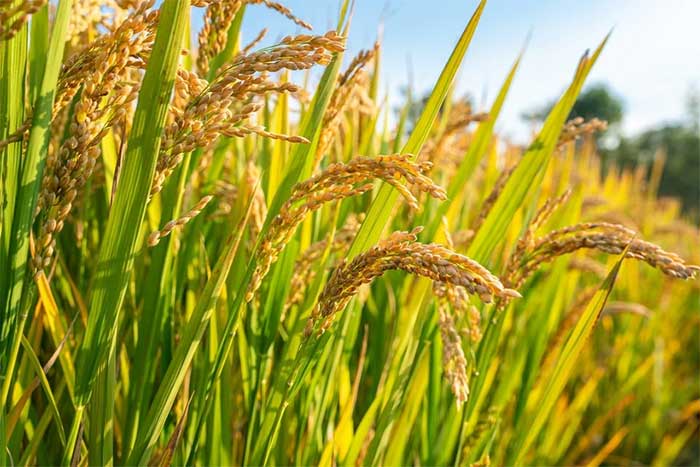Revealing the continuous evolution of rice over 100,000 years
Research by Chinese scientists shows that wild rice was widespread in the lower Yangtze River region about 100,000 years ago, laying the foundation for the later use and domestication of rice.
On May 24, a group of Chinese scientists revealed the continuous evolutionary history of rice over 100,000 years, from a wild plant to being domesticated into today's cultivated rice variety.
According to research, the cultivation and domestication of rice, the main food source for billions of people around the world, had a significant influence on the development of Chinese civilization.

Humans began growing rice about 13,000 years ago. (Source: CFP).
The research team, led by Professor Lyu Houyuan, Institute of Geology and Geophysics of the Chinese Academy of Sciences, systematically studied phytoliths - silicon oxide structures formed in mesophyll plants. silica accumulation , in wild and domesticated rice plants, as well as in soil.
The study found that an increase in the number of fish scales on bulliform phytoliths correlated with characteristics of the domestication process .
Based on these findings, they developed a standard to distinguish wild rice from domesticated rice. Accordingly, wild rice was widespread in the lower reaches of the Yangtze River (Changjiang River) about 100,000 years ago, laying the foundation for the later use and domestication of rice.
About 24,000 years ago, coinciding with the beginning of the last Ice Age, human ancestors began collecting and using wild rice.
This adaptation allows them to find new food sources in cold climates.
Humans began cultivating rice about 13,000 years ago and the density increased rapidly about 11,000 years ago.
One of the authors of the study, Professor Zhang Jianping from the Chinese Institute of Geology and Geophysics, said the study discovered the beginnings of rice agriculture in East Asia and wheat agriculture in Southwest Asia. took place at the same time, marking an important milestone in the history of human development and helping to gain a deeper understanding of the global origins of agriculture.
The development of rice over 100,000 years, culminating in the domestication process, shows the complex interrelationship between rice, climate, human practices and cultural evolution.
The findings published in the journal Science shed light on the evolution between humans and rice, the development of human society and the origins of agricultural civilization.
- A 'screw' from 300 million years ago embedded in a stone, revealing prehistoric peak?
- The journey of creating the best rice in the world by engineer Ho Quang Cua
- The hidden secret of
- New discovery about the origin of rice
- Certification of trademark for Huong Dien rice variety
- The new US rocket will fly for 5 years continuously
- Rice productivity will increase by 30-50% in the next 10-15 years thanks to new varieties
- Looking for rice varieties
- Genetically modified rice is rampant in China
- China successfully researched 'sea rice', capable of raising 80 million people
- An Giang creates rice varieties that are flood-resistant and drought-resistant
- Rice cooks on its own - actually what you're eating isn't real rice!
 Why do potatoes have eyes?
Why do potatoes have eyes? 'Tragedy' the world's largest carnivorous life: Death becomes ... public toilet
'Tragedy' the world's largest carnivorous life: Death becomes ... public toilet Tomatoes were once considered 'poisonous' for 200 years
Tomatoes were once considered 'poisonous' for 200 years Detecting microscopic parasites on human face
Detecting microscopic parasites on human face